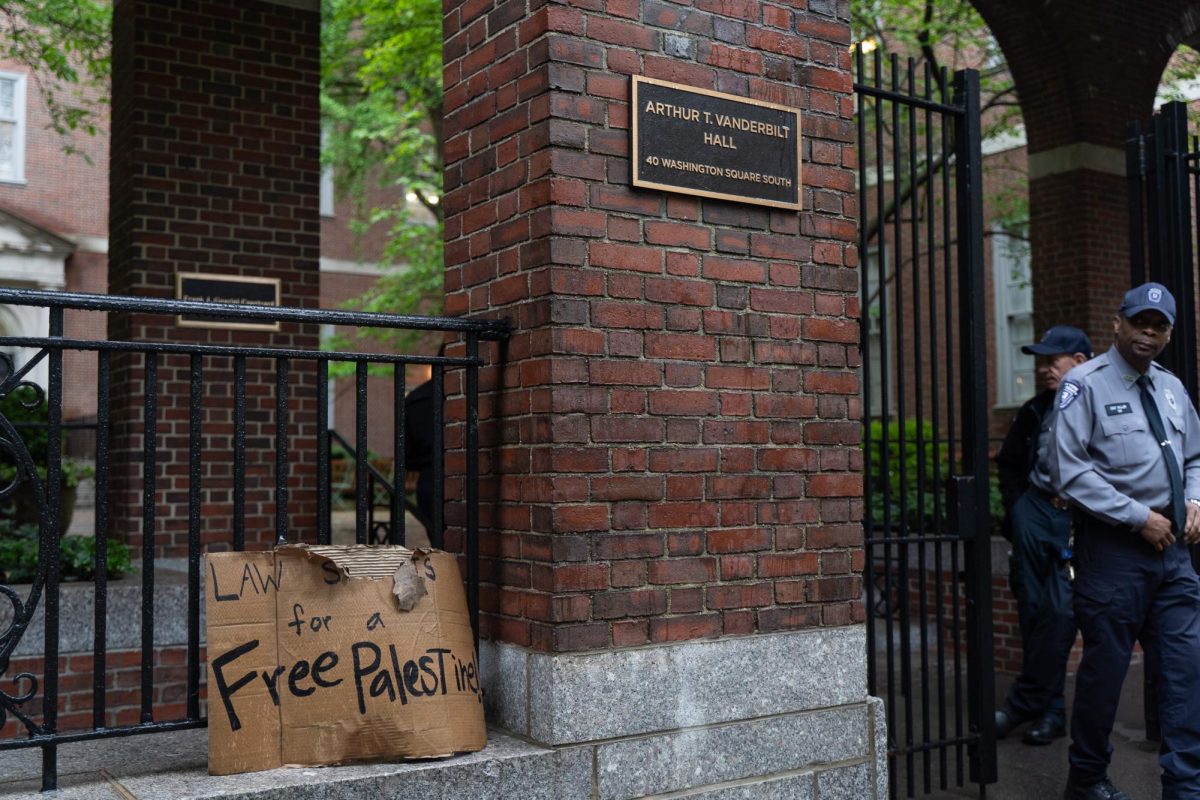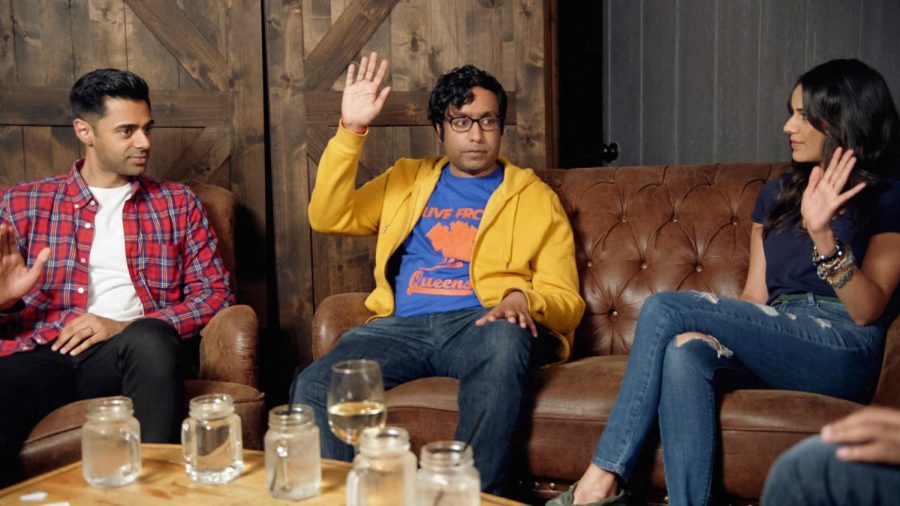‘The Problem with Apu’ Raises Debate on Representation in Media
Courtesy of Emma Griffiths
Hari Kondabolu’s documentary “The Problem with Apu,” discusses Hollywood’s Southeast Asian stereotype, and features prominent Indian entertainers such as Hasan Minhaj.
November 15, 2017
It can be overwhelming to discuss topics of cultural appropriation, caricature, historical context and representation simply because there are so many angles and nuances to each discussion buried under centuries of messy, complicated history. In “The Problem with Apu,” Hari Kondabolu stares down all these factors and dives in head first, creating a detailed, fascinating and rich documentary.
“The Problem with Apu” tackles “The Simpsons’” Apu, whom Kondabolu declares his nemesis, after his comments about the character in 2012 sparked controversy. Kondabolu grapples with the complicated character, whose interesting satire about immigrant life is buried under some of the worst caricaturing of South Asian culture; voiced by Hank Azaria doing a poorly executed accent, the character indulges all the worst stereotypes of South Asian culture and continues to indulge a decades-long stigmatization of South Asian cultures.
“The Problem with Apu” is one of the most extensively personal and in-depth documentaries of recent time. Calling upon many of Hollywood’s South Asian stars, the documentary paints a strikingly detailed picture of Apu and the opinions surrounding him. The film does not hold back in showing how the character contributed to experiences of bullying and racial slurs in the lives of many children. But at the same time, Apu was also the only representation of South Asian characters those children saw when “The Simpsons” first aired. It complicated feelings of wanting to see yourself depicted in media while watching as that media turns your ethnicity into caricature.
The few glimpses the documentary offers into the making of Apu are utterly fascinating. Evolving from a single line in a script to an iconic character, there is a fair share of finger pointing as to who constructed the accent, who apologized, who debated how to fix the problem and who argued that Apu is just a social caricature in a cast of social caricatures. Unfortunately, Azaria refused to be in the documentary, citing an apologetic interview from several years ago as his stance on the issue — though he continues to do the voice.
“The Problem with Apu” is maddeningly thorough, filled with interviews and historical context, but Kondabolu provides vibrant personal heart throughout the piece. The story of this film is how Kondabolu has learned to grapple with his Indian identity through his art, how he once indulged in caricature because he felt he had to and how he has coped with one of his favorite shows reducing his parents to punchlines. Wrestling with all of this works because at the center, these issues are presented from one person’s real, human perspective — one that floods the issues with humanity.
“The Problem with Apu” acknowledges that there are no easy answers when it comes to issues of representation, culture and identity in media. There are simply too many angles, lenses, personal anecdotes and philosophies to throw into the ring that many artists do not even want to attempt tackling them. But “The Problem with Apu” doesn’t flinch from the debate, and instead takes it head on. And in many ways, that is already a monumental step forward.
“The Problem with Apu” premieres on truTV on Sunday, Nov. 19.
A previous version of this article misspelled Hari Kondabolu’s name as Londabolu.
Email Carter Glace at [email protected].























































































































































